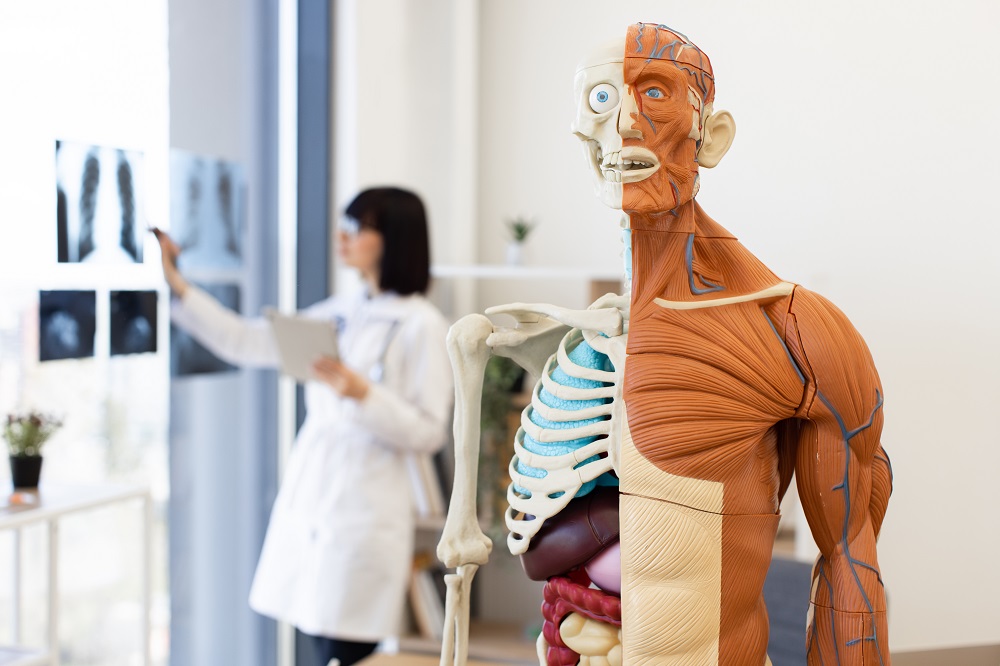We bet you didn’t know these jaw-dropping health facts! Curious already?
We can all agree that the human body is amazing: it can heal, adapt, and grow stronger over time. With ups and downs, whether we’re happy with the way we look or not, we’re still lucky to rely on our bodies every single day.
Our bodies constantly function to keep us alive, from pumping blood and maintaining heartbeats without our conscious awareness to repairing cells while we sleep. Isn’t that awesome?
With greater knowledge, we can better care for ourselves and make minor adjustments that result in a stronger, healthier, and more active life. That’s why in the following lines, we will take a look at some health facts everyone should know about.

The body can produce enough heat in just half an hour to boil water
Oh, wow, how is this possible, you may ask? The human body generates 350,000 joules of energy per hour, which is equivalent to the energy produced by a 100-watt lightbulb. In just thirty minutes, this heat is sufficient to bring a half gallon of water to a boil.
Drinking a cup of coffee will raise serotonin levels
Do you wake up feeling a little depressed? Coffee has been shown in one study to improve mood and reduce the risk of depression. Don’t choose the decaf, though! Caffeine is necessary for this effect.
Our brains can power up an LED bulb
The heat that can boil the water was one thing but the fact that our brains can power up light bulbs is even more awesome. For those who didn’t know, the human brain uses 12 to 25 watts of power, which is sufficient to illuminate an LED lightbulb. Fantastic, huh?
Curious about more brain facts that we didn’t mention in the article? Check out the book Facts about the Brain, written by Dr. David O., available in Kindle edition on Amazon for just $2. It will definitely be a worthwhile read!
Our mouth contains a huge number of bacteria
After reading the following lines, you may reconsider your decision to kiss a random person. The number of bacteria in a single mouth can easily surpass the total population of the planet. No kidding!
Some bacteria drown in the two liters of spit you produce every day while brushing and flossing temporarily keeps them off. That would fill a large bottle of soda. But you could never be said to have a “clean” mouth.
… and the face skin has bugs
There are bugs on your face that are too small to see. And the interesting thing is that these eight-legged bugs mate, lay eggs, hatch, and, of course, reproduce. Your favorite hiding spots are your lashes, eye sockets, and hairline. When we do the daily scrub, some of these mites end up in the drain.
However, if they become unmanageable, they may result in infections of the eyes or skin.
Laughter therapy keeps chronic diseases away
Your body releases endorphins when you laugh, which makes you feel happier. These feel-good hormones improve your mental well-being. Less pain may result from this as well.
Additionally, laughing causes your breathing to quicken. You temporarily experience a state of relaxation as a result of the increased oxygen consumption.
Recently, studies found that laughing out loud after a full meal may also decrease the risk of developing type 2 diabetes. Now you know what you have to do after eating!
Only humans can cry when they’re sad
This may seem like a hard-to-believe fact, but science backs it. While monkeys and dogs are considered among the closest animals to human emotion, we’re still the only ones who can cry when we’re sad.
Although you might observe tears in other animals, they are not emotional. Crying when we are sad is a human characteristic.
Female brain shrinks during pregnancy months
Grey matter regions of the brain show decreases in surface area and cortical thickness in pregnant women. The cerebral cortex, particularly the areas that affect social cognition—where we interpret nonverbal cues and other people’s emotions—is where this loss of grey matter mostly takes place.
This loss of volume does not have a negative effect; rather, it enhances the brain’s capacity to process social situations more effectively, particularly when interpreting the needs and emotions of infants.
You lose the water from the body before you’re feeling thirsty
Examine the color of your urine rather than your level of thirst. It ought to be nearly clear. If not, you should have a few drinks.
For some people, the recommended daily water intake is eight glasses; however, for others, this may be too little or too much.
Temperature, body weight, and activity levels all affect how much water you need. If you’re not sure how much water you need per day according to your body, don’t be afraid to ask your doctor!
Overdose from water exists!
People can indeed consume too much water. Hyponatremia is the name of this condition, which results in a dangerous decrease in sodium levels and swelling of the body’s cells.
Your body needs fat too!
…Especially from the food and scientifically speaking, not all fats are bad for us. You need fat for heart and brain health, and unsaturated fats, such as omega-3 fats, are an essential component of a balanced diet.
Lemons are one of the world’s healthiest foods
Lemons have a lot of vitamin C but also help with weight loss and immune system function. A quick and easy way to improve your day’s wellness is to add some to your water.
However, if you suffer from stomach issues like gastritis or acid reflux, it’s not recommended unless your doctor allows you to consume it.

Coffee doesn’t cause dehydration
Contrary to popular belief, there is a lot of water in coffee. Although it contains caffeine, which acts as a diuretic, the water content makes up for this effect. A study found that coffee can help you stay hydrated when consumed in moderation.
Diet is highly personal
Because what suits your body and your needs may not to others and vice versa. For example, while some people do best on a low-carb diet, others require a balance between protein and carbohydrates.
This is why it’s crucial to consult a physician or nutritionist when making dietary adjustments.
The sun is part of your daily nutrition
Sunlight exposure is necessary for the production of vitamin D. Therefore, getting some sun exposure is a part of a healthy diet.
During the winter months, when the sun is mostly hiding and is seeing us from afar, it is recommended to take vitamin D supplements to help you boost your mood and overall well-being.
Getting more exercise may mean better sleep
You may get more deep sleep if you exercise moderately. Getting some exercise earlier in the day may enhance your overall bedtime experience, even though you won’t want to run a mile before bed if you want to be ready to sleep.
Because it affects your growth, hormones, immunity, blood pressure, appetite, breathing, and cardiovascular health, sleep is essential.
What other facts about health and the human body do you know? Let us know in the comments below.
You may also want to read 6 Reasons Why Americans Pay So Much For Health Care.


